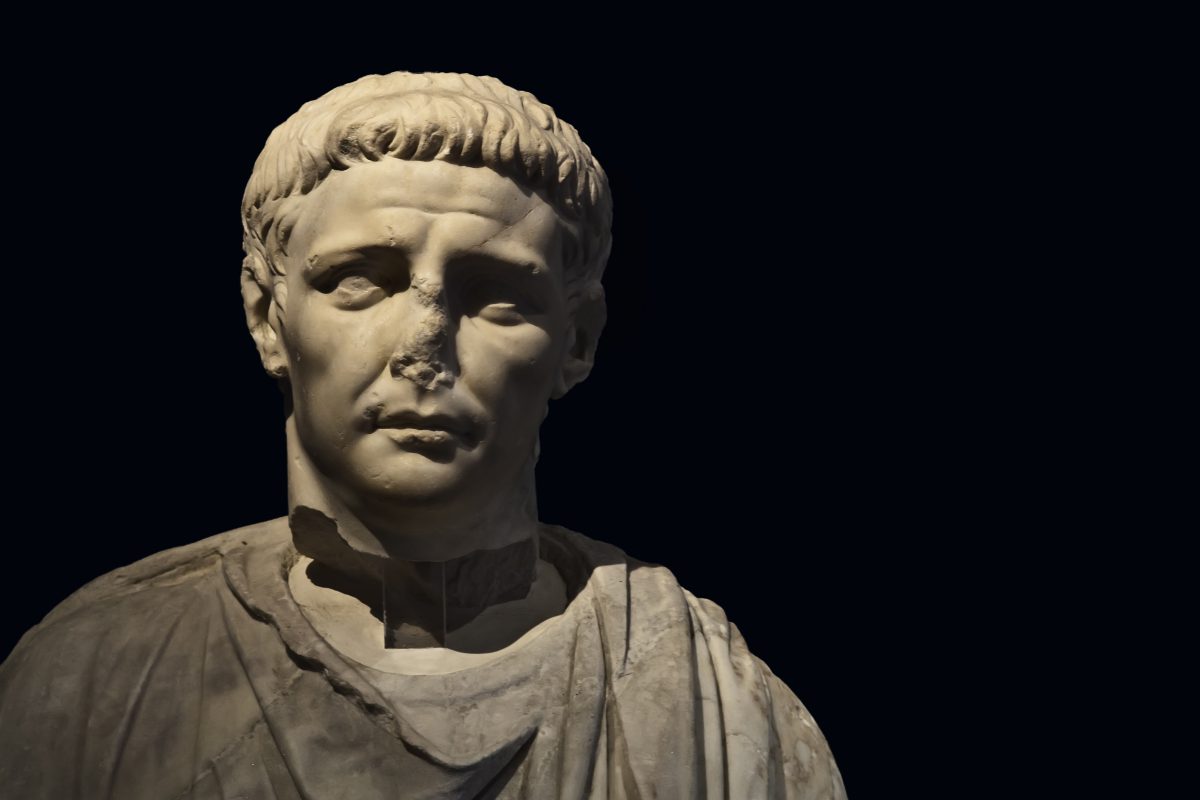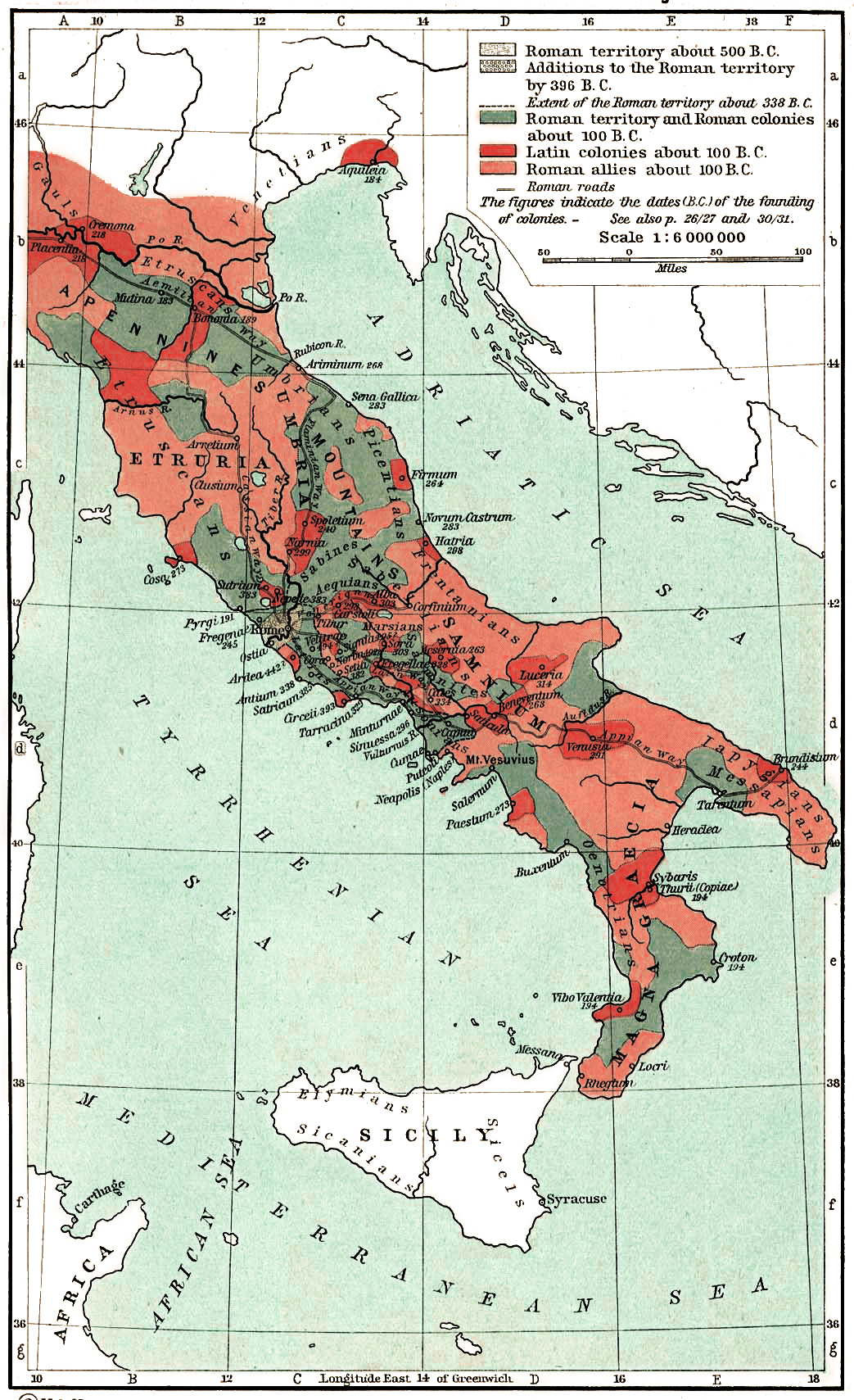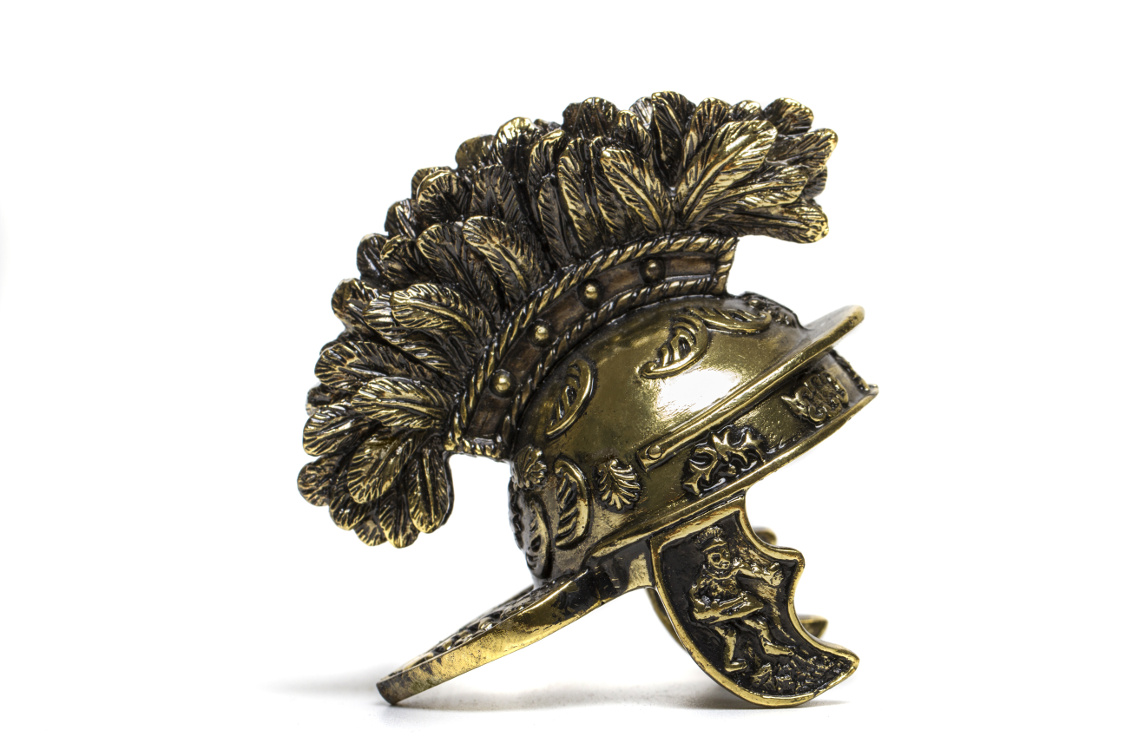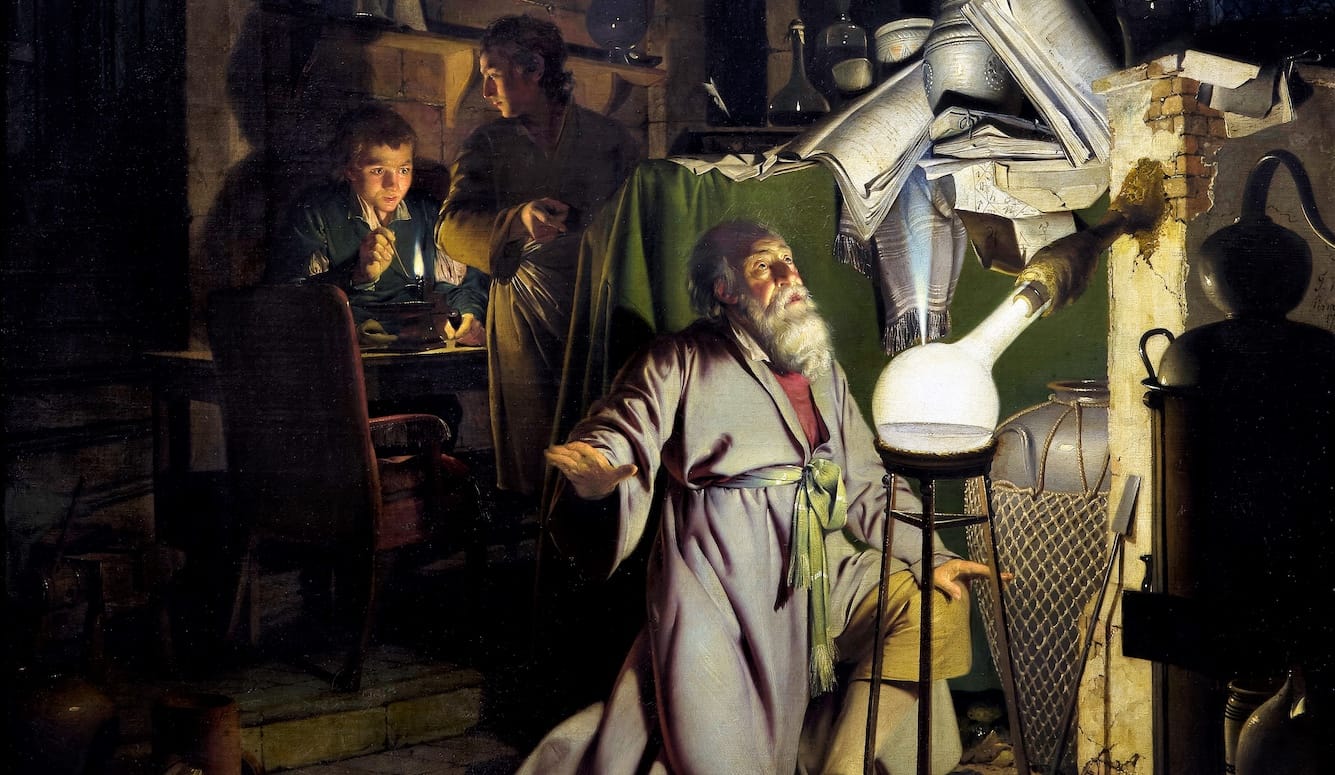History
Yes, the Romans Were Diverse—but Not in the Way We Understand It
For Aristides, Rome was the ultimate polis: the dispenser of just government, and through its unique constitution the embodiment of principled republicanism.

“Neither sea nor intervening continent are bars to citizenship, nor are Asia and Europe divided in their treatment here. In your empire all paths are open to all.” – Aelius Aristides, ‘Roman Oration’. trans. Oliver.
The above words, so apparently congenial to the ‘open border’ mentality of the modern Western mind, were in fact written in the third century AD by a Greek orator who was also a Roman citizen. In the speech from which this extract was taken, thought to have been given in Rome in AD 143 or 144 during the reign of emperor Antoninus Pius, the Greek Aristides illustrates a remarkably beneficent portrait of Roman power, the same power which had after all made his home the subject, ultimately, of a non-democratic Roman governor. The speech is a paradox to modern temperaments. Far from extolling the spread of an altruistic globalisation, Aristides extols the virtues, as he sees them, of a violent imperial power which had not only ingested his homeland but in doing so had implicitly repudiated traditional Greek notions of the city as the centre of the freely lived life. By Aristides’ time there were no more free cities in Greece; Athens, Sparta and all the rest were subsumed by a megastate the likes of which Europe would never see again, until, perhaps, the present century.
For Aristides, Rome was the ultimate polis: the dispenser of just government, and through its unique constitution the embodiment of principled republicanism. Why should Aristides praise his overlords with such enthusiasm? The usual dogma of the present day is that empires are universally cancerous; destroying and usurping the local, the particular, the authentic, seeding despair and hopelessness in conquered peoples as they are spread by violence and intimidation. In modern times, the British empire is the epitome of such a model: exploitative, rapacious, racist. Was the Roman Empire any different? Was Aristides merely possessed of a false consciousness?
Such questions have been given renewed purchase in my mind in recent days, as the question of ethnic diversity in Roman Britain has come up for bitter debate in no less an academic forum than twitter. Mary Beard, the justly famed classicist at Cambridge, was accused by Nassim Nicholas Taleb, a statistician and author, of misleading the public by condoning a BBC cartoon which implied a Britain in the Roman period that was little ethnically dissimilar from the Britain of modern times. The presence of a supposedly sub-Saharan black man (and his darker children), was apparently enough to cause the controversy —
A kerfuffle about diversity in the Roman Empire, by @sarahzhang https://t.co/CcOqgc9gwZ pic.twitter.com/PjdIVBNAAP
— The Atlantic (@TheAtlantic) August 3, 2017
At question for Taleb seems to have been the extent to which the cartoon was representative of a typical Romano-British family, and whether this might have been misleading for modern audiences. The black man in the illustration is based on the historical figure of Quintus Lollius Urbicus, a Roman governor of Britain during the reign of Pius (Urbicus seems to have been campaigning in Britain at around the same time that Aristides was giving the speeches in Rome, during the AD 140s), whose origins were in modern Algeria. Urbicus’ life and his martial deeds are attested by Latin inscriptions in Britain and by a later historian, and also by an inscription on a statue base in Algeria itself, set up by a town council. The Algerian inscription reveals a rich career of ‘public service’, extending from Germany to modern Israel, and from the reign of Hadrian, when he helped pacify Judea, to Pius, for whom he waged war against the Scottish tribes. Whether as governor, military commander or priest, Urbicus was well travelled, and would have been familiar with a range or imperial provinces from Britannia to Africa to Judea. Whether or not he was black was for the Romans clearly immaterial.
In this debate much rests on the word ‘diversity’ itself. Its modern connotations are increasingly associated with the multicultural policies of modern Western states and those are certainly foreign to the ancient Roman Empire. If those advocating for a diverse Roman Britain can be faulted for anything, it is in not drawing strict enough a distinction between ancient and modern political and cultural circumstances. Clearly, the word ‘diversity’ needs to be deployed in a cautionary manner when discussing ancient societies, and Rome should not be confused for a modern post-Enlightenment state. Its society and culture condoned the buying and selling of human beings as chattel, and no social context, or so I would argue, can make that right or good. Nevertheless, the Roman state was remarkable in many respects, not least in its capacity to embrace a wide variety of ethnic, tribal and national identities. Clearly Urbicus was an example of this, but whether or not he was typical of people in Roman Britain is difficult to ascertain.
The debate since the Twitter fracas, waged through social media and in the pages of agenda-driven newspapers, has focused on the challenge of interpreting DNA evidence. DNA evidence is a worthy topic of deliberation, but in a sense it misses the point. Ancient inscriptions cannot adequately solve the question of ethnic make-up in Roman Britain, but genetic evidence has its own limitations. It cannot enlighten us as to the perspective of ancient people on ethnic identities; it can enable us to trace genetic lineages, but how these transform into cultural conceptions of ethnicity is not at all straightforward. The Romans, as we will see, were aware of something approximating the modern notion of ‘ethnicity’ but by Aristides’ time such divisions had been largely subsumed by an embracing concept of Roman citizenship. It is this that Aristides is most acutely intent on celebrating in his speech.
But in this dispute the voices of the Romans themselves have been forgotten. Most Romans would have been stupefied by modern obsessions with race; classical historians from Herodotus onwards display awareness of and fascination with non-Greco-Roman culture, and no less a Roman that Caesar sought to sketch for his readers a picture of the cultures of the peoples whom he intended to conquer. Caesar, of course, was no flaky liberal – such a designation would be unworthy of any Roman imbibed with sense of Roman cultural supremacism. Roman power was indisputably spread through conquest, and this entailed a great degree of suffering on the part of conquered people. But the Roman Empire was well established by the second century AD in most of its domains – the conquest of Dacia (modern Romania) during the reign of emperor Trajan toward the beginning of the second century AD would be last time the empire was significantly expanded. The emperor who followed after Trajan’s death in AD 117, Hadrian, would go on to consolidate the empire’s borders, establishing clear boundaries between the Roman world and the world of the non-civilized ‘barbarians’. This policy also had the effect of consolidating Roman identity as a form of political allegiance to the Roman state. Within the Roman Empire, the Roman citizen had access to the legal dispensations of the Roman state, guaranteed and ultimately personified by the emperor himself. It is this quality which Aristides lauds. Roman citizens are by definition equal regardless of ethnic origin. In his speech Aristides does not downplay ethnicity; he himself speaks as Roman citizen of Greek extraction, as a man intimately versed in the history of his own people and their culture. But, as he says:
No one worthy of rule or trust remains an alien, but a civil community of the World has been established as a Free Republic under one, the best, ruler and teacher or order; and all come together as into a common civic centre, in order to receive each man his due. – ‘Roman Oration’, part 60. Trans Oliver.
Aristides’ overweening rhetoric might cause a modern reader to baulk with scepticism, but there is no reason to suppose Aristides is engaging in mere flattery. The second century was a period of extended and prolonged peace (at least within the empire, excepting Judea), and Aristides continues in the course of his oration to celebrate not only citizenship and ease of movement throughout the empire, but also the comparative lack of military presence in the cities of Asia Minor. These cities, he says, were “clear of garrisons”, but also “…gleam with radiance and charm”. He singles out Ionia, the then Greek-speaking Mediterranean coast of what is now modern Turkey. Long a contested country, Aristides praises the fruits of the pax Romana, the Roman peace, and names Ionia “first in beauty”. Archaeology broadly confirms Aristides picture: the cities of the Greek east flourished during this period.

Of course, the Roman Empire was a pre-modern world as I have mentioned, and disease, slavery, banditry and other afflictions were common. Likewise, Aristides is speaking from a position of privilege: the vast bulk of the peasant population would never have moved outside of their home village or town. Nonetheless, Aristides’ vision is of a world of disparate ethnicities united under the banner of just government. However much the reality might have been a mere parody of this enlightened conception, it remains true that such a perspective could be uttered, without irony, by a subject of the Roman state whose country was among those conquered. This is the Roman model of ‘diversity’: conquest and subjugation, followed by full initiation into the Roman state.
The ancient historian Clifford Ando has written that “…it is in the attitudes to the exercise of public power that the ancient experience of imperialism differs most strongly from the early modern world…”1 Public power was in the mature Roman world something praised, and rarely fought against. There were exceptions: the Jews with their ancient culture and their long held cultural memory of subjugation and restraint were often at odds with the Roman authorities, and not infrequently this spilled into violence. But Jews could be and were often Roman citizens, and large Jewish diasporas were then, as now, communities of tremendous intellectual achievement. The diaspora of Alexandra, for example, produced philosophers, poets and critics of great accomplishment.
Notwithstanding some exceptions, the Roman world in the second and third centuries was remarkably like that of the European Union in the twenty-first: disparate identities were united under a single political umbrella, and this was cause for celebration among elites who benefited from the support of the central government. In the Roman world, cities and towns were governed by local magnates and families, who in turn participated in the material expressions of Roman culture through a system of public benefaction. They built bathhouses, arches, arenas, civic buildings and other paraphernalia familiar from the ruins of Roman towns and in turn earned votes in the city council.

They inscribed their names on these buildings in Latin, and sometimes also in a local language, and thereby advertised their civic virtue. Self-serving perhaps, but also a virtuous circle: cities were not simply locations for elites to bask in indulgence, cut off from the people in their palaces or mansions. Elites were expected to use their wealth in service to their community. They could ‘code-switch’ between a more local identity, perhaps embodied in the language of everyday speech, and a civic identity expressed in the architecture of their towns and perhaps in their choice of luxury items, clothes and other material features of life. A rosy picture, maybe, but it is unwise to treat all pre-modern history with too cynical a brush. The Roman world was diverse, it did function effectively during the first and second centuries, and it did manage to generate an appealing social contract which was brought into enthusiastically by a variety of individuals, tribes, peoples and nations.
Like our world though, such a penchant for plurality had its limits. The Roman dispensation of the second and third centuries only came about after a protracted, violent and culturally calamitous series of civil wars and cultural upheavals. These especially rocked the Roman state during the second and first centuries BC, and culminated in the civil war which ended the republic and brought about the accession of Augustus in 27 BC. Another war, called the Social War by ancient historians (after the Latin word socii, meaning ‘allies’) was fought between 91-89 BC. The conflict was at its heart about the character of Roman citizenship: who had the right to it, who could participate in Roman government, and how the Romans themselves should view their identity.

By the period of the first century BC the Roman state had grown to become immensely powerful; it had defeated its arch-rival Carthage in the centuries before and it had established itself as a broker in the power-games of internecine competition between Greek kingdoms, leagues and city states in the east. Nevertheless the whole of Italy was not yet ‘Roman’ – most peoples were independent or semi-independent, but many were Roman socii – allies. Far from attempting to inculcate their culture throughout the peninsula, the Romans had up to this point guarded membership into their res publica rather jealously. Roman allies – Oscans, Umbrians, Greeks and others, spoke their own languages, decided their own laws and delivered their own justice. But why should they have fought for the Romans against her enemies if Rome was prepared to offer so little in return? Rome was the most powerful state in Italy, but Roman allies could not adequately participate in the political processes which increasingly dominated their peninsula. Moreover, the Romans were not confined to Rome: colonies of Roman citizens had begun to sprout up throughout Italy, and these possessed rights which were unavailable to the non-citizens of the socii. In a world progressively dominated by the Roman state, this was unconscionable for the allies. And so they fought.
They did so not out of a desire for freedom so much as for inclusion: the right to participate in the Roman state, with all the freedoms and obligations that this entailed. The ancient historian Andrew Wallace-Hadrill puts it like this: “What is evident on any interpretation of the conflict is that it was the allies who were challenging Rome for a more advantageous integration into the Roman state, not the Romans attempting to impose it on the allies.”2 The Lex Plautia Papiria, a law promulgated by the Assembly in 90 BC, granted citizenship to the socii who challenged Rome in the war.
The Social War opened the floodgates, after which time Roman citizenship could no longer be sanctioned off for ‘ethnic’ Romans. By the time of Augustus, the poet Vergil captured the new cultural status-quo. In his Aeneid, Vergil has his titular protagonist, Aeneas, dispense with his Trojan identity in favour of an Latin one. The Romans themselves were to be composed of a multiplicity of peoples, they were not to spring out of the earth a fully formed ethnic group as the Athenians had done, but were to come together to form a just state whose mission it was to spread civilization and bring all the world under Roman rule. But once a Roman, always a Roman.

This vision was contested throughout imperial history, and well into the Julio-Claudian period the matter of access to Roman institutions could cause contention. As the empire spread ever further, beyond the Mediterranean and into Gaul, the question of who could be admitted into the inner sanctum of the Roman state took on an urgent quality. The emperor Claudius, though of Italian stock, was born in Lugdunum (modern Lyon, France) and was on the matter of the Gauls that he delivered a speech before the Roman Senate in AD 48. The speech concerned the matter of allowing ‘provincials’ admission to the Roman Senate, the most prestigious body in Roman society. Tacitus gives a version of the talk in his Annals, but a partial copy inscribed on bronze was discovered in Lyon in 1528. The tablet copy has Claudius say:
Sed ne provinciales quidem, si modo ornare curiam poterint, reiciendos puto
‘I hold nevertheless that provincials ought not be rejected so long as they can bring honour to the senate.’
Claudius, at any rate, saw value in enlarging the pool from which Roman senators could draw recruits. Gaul was by now ‘civilized’ and adorned with cities on the Roman colonial model. Why should its upper classes be denied access to Rome’s central institution? Whatever the outcome of the speech, the Roman franchise was progressively extended until AD 212, when the emperor Caracalla granted citizenship to all free adult males and made non-Roman free women the theoretical equals of their Roman counterparts. The so called Antonine Constitution represented the apogee of the Roman imperial project. After this time, the crisis of the third century inaugurated a new period of Roman history, which would ultimately culminate in the destruction of the Roman state in west. With the dissolution of the Roman state, a new cultural paradigm became predominant, epitomised by the Church and its catholic religion, and it is in the crucible of ecclesiastical culture coupled with feudal dynastic politics that the modern West was eventually born.
It is a tragedy, perhaps, that the Roman model was abandoned. The modern era, for all its material comforts, is perhaps incapable of returning to it. The Roman model of ‘diversity’ sought not to emphasise ethnic differences, but to relegate them to a secondary and ultimately inconsequential status. For a while, all that really mattered was that one aspired to the status of civis Romanus. Roman diversity also required something that the modern West is incapable of providing: a critical, but in the end self-assured and even triumphalist vision of its own history, and with it a belief in the value of one’s own society and the ability to make membership of that society a desirable end in itself. The modern West is fractured, and just as in the Rome of third and fourth centuries pleas to encompassing civic virtues seem to hold less appeal in the face of fragmentation and conflict. We cannot, and should not follow the Romans in all matters, but we might learn something valuable if we take their emphasis on a universal and aspirational mode of civic participation seriously.
Endnotes
[1] Ando, C. 2000. Imperial Ideology and Provincial Loyalty in the Roman Empire. University of California Press, Berkeley, 67.
[2] Wallace-Hadrill, A. 2008. Rome’s Cultural Revolution. Cambridge University Press, Cambridge, 81.






